This is a parallax text block. Click the edit button to change this text.
About the department
The Department of Food and Environmental Chemistry was established based on the decision of the NMFRI’s Director in October 2008. Today, it has got 9 employees, including 2 researchers. The research of the Department is focused on the following topics:
Undesired substances in the water environment
The organisms’ exposure to the water environment pollutants may induce a number of unfavourable changes and abnormalities in them, on the subcellular, organ or even population levels. The purpose of the research conducted in the Department is to identify the pollutants, which are potential threats to the correct functioning of the Baltic Sea ecosystem and to get to know the processes of their circulation in the environment.
Seafood
Seafood is promoted primarily because of its beneficial content of fatty acids. However, as the scientific literature says that it also contains pollutants, the risk to the health connected with consuming seafood is also discussed. The research conducted at the Department provides information on what species of fish can be the most beneficial to the health as well as data on the consumer’s exposure to chemical pollutants in the products on the Polish market.
The quality of food is determined by both the quality of the raw material of which it was produced and the course of the production process. Therefore, the research conducted in the Department aims to optimize the technological solutions in the entire production chain, so that the quality and safety of the final product improve.
Rational raw materials, water and sewage management at fishing industry facilities
Fish processing is a significant element on the raw material’s way to its consumer, as most consumers are more willing to buy products, which are easy to prepare than fresh fish. It leads to generation of waste and by-products, which should be used in a way, which entails the lowest possible material and environmental costs. The unique composition of fatty acids and amino acids in the fish proteins is the reason why by-products of fish processing can be transformed into valuable products, which we could apply in the production of food, feeds and dietary supplements.
The research encompasses:
- the use of fish components in production of feeds and diets of animals
- processing and use of waste and process water from the fishing industry
- solutions which help implement more environmentally friendly production technologies
The department provides analytical services for external entities in:
- heavy metals and persistent organic pollutants: pesticides, aromatic hydrocarbons (WWA, including benzo(a)pyrene) and their alkylated derivatives, as well as metabolites, PCB, PBDE, HBCDD, organotin compounds in environmental, food and feed samples;
- fatty acids, lipid soluble vitamins;
- basic composition of food: protein, fat, dry matter;
- parameters connected with food freshness;
- parameters for assessing the quality of sewage;
- toxicity assessment of environmental samples using biotests.
Staff
| NAME | TELEPHONE NUMBER | |
|---|---|---|
| Acting Head | ||
| Dr. Ilona Waszak | iwaszak@mir.gdynia.pl | +48 587-356-190 |
| Professors | ||
| Dr. Eng. Lucyna Polak-Juszczak, Professor of NMFRI | lpolak@mir.gdynia.pl | +48 587-356-166 |
| Senior scientists | ||
| Dr. Ilona Waszak | iwaszak@mir.gdynia.pl | +48 587-356-190 |
| Engineering and technical employees | ||
| Leszek Barcz | lbarcz@mir.gdynia.pl | +48 587-356-165 |
| M.Eng. Agnieszka Góra | agora@mir.gdynia.pl | +48 587-356-163 |
| Karolina Jonko-Sobuś, M.Sc. | kjonko-sobus@mir.gdynia.pl | +48 587-356-165 |
| M. Eng. Małgorzata Malesa-Ciećwierz | mmalesa@mir.gdynia.pl | +48 587-356-164 |
| M. Eng. Mateusz Radomski | mradomski@mir.gdynia.pl | +48 587-356-165 |
| Wiesława Ruczyńska, M.Sc. | wruczynska@mir.gdynia.pl | +48 587-356-163 |
| M. Eng. Urszula Szatkowska | uszatkowska@mir.gdynia.pl | +48 587-356-164 |
Major projects (since 2016)
- Distribution of methylmercury and inorganic mercury in marine and freshwater fish tissues and organs. 2016–2017, dotacja
- ProHealth – Innovative processing to preserve positive health effects in pelagic fish products. 31.03.2016–30.03.2019, call
- SeaQual – Seafood safety and quality in terms of the zoonotic and toxicological hazard: risk assessment, monitoring and mitigation. 01.01.2016–30.07.2019, call
- InnoAquaTech – Cross-border development and transfer of innovative and sustainable aquaculture technologies in the South Baltic area. 30.06.2016–29.06.2019, call
- PAHs in the coastal atmosphere. 02.10.2018–01.10.2021, call
- Monitoring of dioxins and PCBs in fish caught in the Polish Marine Areas. Chemical analyses and good practices in monitoring. 18.12.2019-31.10.2021, project implemented within the framework of the measure “Measures concerning marketing”, within the scope of Priority 5. Supporting marketing and processing, included in the Operational Programme “Fisheries and the Sea”
- Bay of Puck – A study programme on the marine environment of the Puck Bay, with particular emphasis on factors relevant to fisheries in 2019-2021; 06.09.2019-29.10.2021; Ministry of Agriculture and Rural Development
- Safety of Baltic fish in the context of the presence of chemical weapons. 01.01.2020-31.12.2020, grant
- Replacement of the production of Baltic cod products with new products from other fish species in fish processing plants due to the introduction of Commission Implementing Regulation (EU) 2019/1248 regarding the ban on cod fishing in the Baltic Sea from 22 July 2019. 01.04.2020-31.12.2021, competition
- Development of a programme for using modern, complex carp processing technologies in aquaculture farms and fish processing plants. Guide. 25.11.2019- 31.08.2022, competition
- Reducing the negative impact of inland fishing on the aquatic environment through innovative management of low-value fish species. 01.12.2020-31.12.2023, competition
Major publications (since 2016)
- Dąbrowska H., Kopko O., Lehtonen K, Lang T., Waszak I., Balode M., Strode E. 2017. An integrated assessment of pollution and biological effects in flounder, mussels and sediment in the southern Baltic Sea coastal area. Environmental Science and Pollution Research 24 (4), 3626–3639
- Polak-Juszczak L., Nermer T. 2016. Methylmercury and total mercury in eels, Anguilla anguilla, from lakes in Northeastern Poland: health risk assessment. EcoHealth 13, 582–590
- Ruczyńska, Szlinder-Richert J., Drgas A. 2016. The occurrence of endocrine disrupting compounds in off-shore sediments from the southern Baltic Sea. Environ. Sci.: Processes Impacts, 18, 1193-1207
- Kopko O., Dąbrowska H. 2017. Variability of biological indices, biomarkers, and organochlorine contaminants in flounder (Platichthys flesus) in the Gulf of Gdańsk, southern Baltic Sea. Chemosphere 194, 701-713
- Siudek, P., Frankowski, M., 2017. The effect of sources and air mass transport on the variability of trace element deposition in central Poland: a cluster-based approach. Environmental Science and Pollution Research 24(29), 23026-23038
- Aljewicz M., Juśkiewicz J., Polak-Juszczak L. 2018. Effect of milk gel acidity and β-glucan structure on fermentation processes in the caecum and bioavailability of mineral compounds in growing rats. Journal of Functional Foods 49, 214-223
- Szlinder-Richert J., Malesa-Ciećwierz M. 2018. Effect of Household Cooking Methods on Nutritional Value of Cod and Salmon – Twin Fillet Approach. Carpathian Journal of Food Science and Technology, Special Issue from BEMS 2018 Conference, 142-157.
- Malesa-Ciećwierz M., Szulecka O., Adamczyk M. 2019. Polycyclic aromatic hydrocarbon contamination of Polish smoked fish: Assessment of dietary exposure. Journal of Food Processing and Preservation, 43 (7), https://doi.org/10.1111/jfpp.13962
- Waszak I., Dabrowska H., Warzocha J. 2019. Assessment of native and alkylated polycyclic aromatic hydrocarbons (PAHs) in sediments and mussels (Mytilus spp.) in the southern Baltic Sea. Environ. Sci.: Processes Impacts, 21, 514-527
- Ruczyńska W., Szlinder-Richert J., Nermer T. 2020. The occurrence and distribution of nonylphenols and nonylphenol ethoxylates in different species of fish. Environmental Science: Processes & Impacts, 22, 1057-1070.
- Polak-Juszczak L., Podolska M. 2021. Mineral and toxic metal composition in three commercial species of Gadidae. Journal of Food Composition and Analysis, 95, 103658
- Polak-Juszczak L., Szlinder Richert J. 2021. Arsenic speciation in fish from Baltic Sea close to chemical munitions umpsites. Chemosphere, 2021, 284, 131326
- Siudek P., Ruczyńska W. 2021. Simultaneous measurements of PM2.5- and PM10-bound benzo(a)pyrene in a coastal urban atmosphere in Poland: seasonality of dry deposition fluxes and influence of atmospheric transport. Aerosol and Air Quality Research, 21, 210044.
- Waszak I., Jonko-Sobuś K., Ożarowska A., Zaniewicz G. 2021. Estimation of native and alkylated polycyclic aromatic hydrocarbons (PAHs) in seabirds from the south coast of the Baltic Sea. Environ. Sci. Pollut. Res., 28, 4366-4376.


